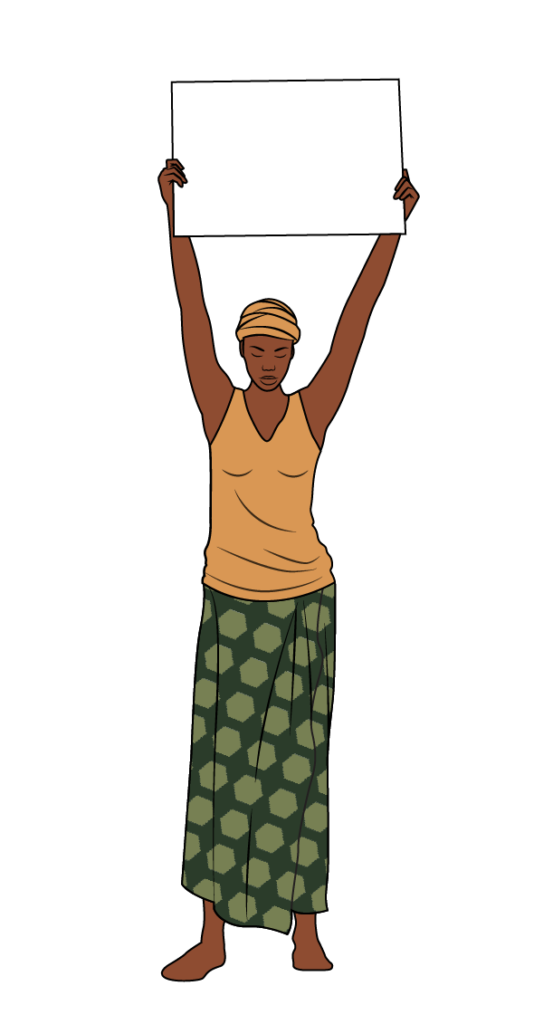With support from the MAMA network, VIAC is able to organize a good number of community interventions and research on access to SRHR information specifically on safe abortion and self-managed abortions in Cameroon. Using various techniques and strategies in community interventions, we are able to design and organize age-appropriate programs targeting different age groups within our program scope. As a means to talk about self managed and safe abortion with pills in our setting (restrictive) we have organize seventeen (17) community outreach, held six (06) safe spaces with adolescent girls and young women, four (04) sessions with persons with disabilities and seven (07) sessions with internally displaced persons (women) in the past five months.
Our entry points have always been sexual health education, menstrual hygiene management, contraceptives including male and female condoms, and access to safe abortion information. These outreaches involved parents, whereby Vision in Action (VIAC) advocated for access to sexual reproductive health for adolescents.
In our safe space discussion with adolescent girls and young women, we reached out to 88 AGYW in our safe space initiative. Through our sessions, we are able to create an enabling environment for them to share their stories and find empathy within the group thereby reducing abortion stigma, increasing confidence and self-esteem, and clarifying myths about self-managed abortion while sharing information on the hotline.
(Pic decription: A cross section of safe space discussion)
An attained milestone for the organization is our work with girls and women with disabilities; we organize four sessions reaching out to 52 girls and women with disabilities in the region. It was amazing to see and know the needs for women with disabilities, how different the needs are and to say the least, how impactful was our session. Ranging from talking about contraceptives and menstrual health.
It’s worth highlighting that, the outcome of these activities in rural and urban areas varied as people in the rural areas had so many myths about contraceptives and sex education, highlighting stigmatization and fear of promiscuity as one of the reasons for the lack of sex education for adolescents. In urban areas, there were a lot of misconceptions about contraceptive use. Many people attributed the usage of contraceptives (except condoms) to infertility.
At the end of these community outreaches, a positive impact was created as they stop believing myths associated to sexual reproductive health, thus their interest grew over time as an overwhelming number of people contacted the hotline to get more information on their sexual reproductive health. Because parents of adolescents gained knowledge on the importance of sexual reproductive health, after the session, parents talked about sex education with their children. Moreover, we were called back by the parents of some communities as they gave us the opportunity to talk about contraceptives, safe abortions and sex education with adolescents. This created a free atmosphere for these children to discuss issues of their sexuality without being reproached.

